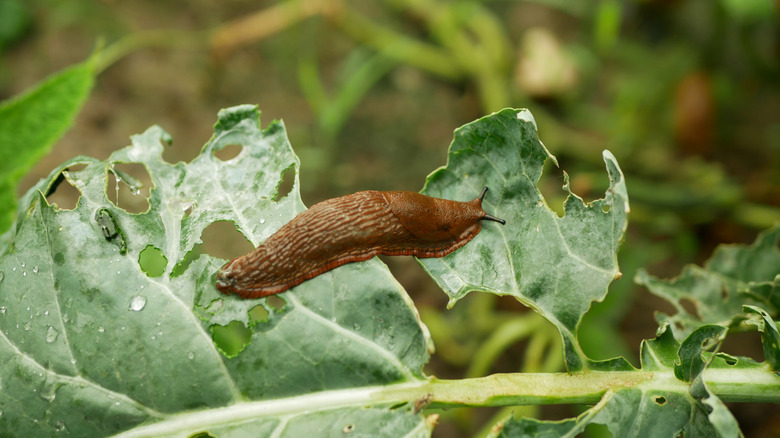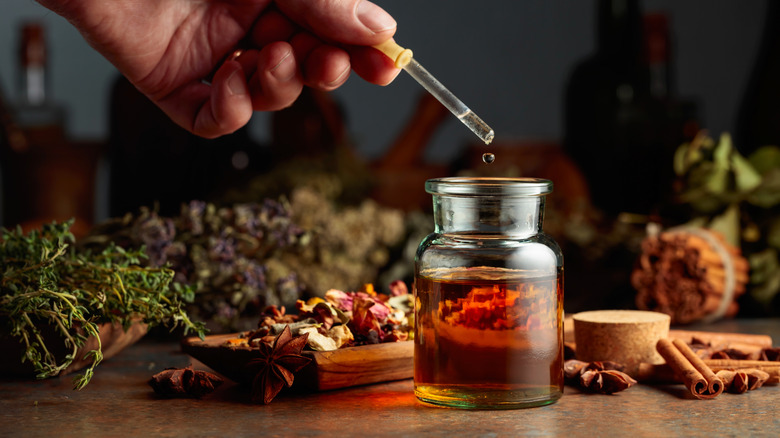Garden Slugs Could Be A Thing Of The Past With The Help Of One Pantry Staple
We may receive a commission on purchases made from links.
For gardeners, much joy comes from stepping back and seeing a garden with vibrant blooms, lush foliage, and tidy planting areas. But we know better than to get too complacent. Upon closer inspection, we will likely spot weeds popping up among annuals, wilted plants in underwatered areas, or holes left by slugs, paired with their slimy getaway trails.
Thankfully, slugs are well-known and predictable creatures. We know what they like (moisture, yeast, cool temperatures, and dark hiding spots) and can use this knowledge to get rid of slugs naturally. One common solution is to invite them out for a drink — make a beer trap for slugs and lure them to their death. But if the thought of tossing out a container full of drunk dead slugs seems grotesque, try a less hands-on solution that can be found in your pantry.
The same cinnamon that we love to eat in baked goods or smell in our holiday candles is the same ingredient that has been found to deter slugs. A 2018 study in Florida Entomologist evaluated various options to protect plants from the Florida leatherleaf slug (Leidyula floridana), including two sprays containing plant essential oils. The results showed that the cinnamon oil–based product worked as a repellent and was toxic toward the slug, while the product without cinnamon oil had no effect. Among all the products assessed by the study, slugs were most impacted by products containing cinnamon oil, hydrated lime, or metaldehyde – a chemical often found in molluscicides that is toxic to dogs, cats, and other animals.
Ways to use cinnamon against slugs
If you want to try using cinnamon powder to deter slugs, find the pests' favorite hangout spot and sprinkle the spice around individual plants or around the planting area. The slugs will be turned off by the feeling of the powder on their bodies. Keep an eye on the weather forecast, though, and put out more cinnamon if your area gets rain or strong winds. However, based on the findings of the study above, cinnamon oil (often used as an insect repellent) may give you better results. To create your own slug repellent, fill a spray bottle with water and a teaspoon of cinnamon oil.
You could also try other essential oils that have proven to be effective against slugs. In a 2020 study in Journal of Pest Science, researchers studied the effects of essential oils — including cinnamon — on the gray field slug (Deroceras reticulatum), which commonly attacks seed crops. Although a 1% concentration of cinnamon was lethal to slugs, thyme, spearmint, and pine oils of the same concentration were significantly more toxic toward them.
One thing to remember is that although cinnamon has beneficial antifungal properties, limit its use to the soil around the plant when killing slugs — rather than the plant itself. Thyme, mint, and cinnamon essential oils, being less refined, have the potential to damage sensitive plants more so than safer horticultural oils (known as summer or superior oils, like Bonide's All Seasons horticultural and dormant spray oil), which can safely be used on foliage.

